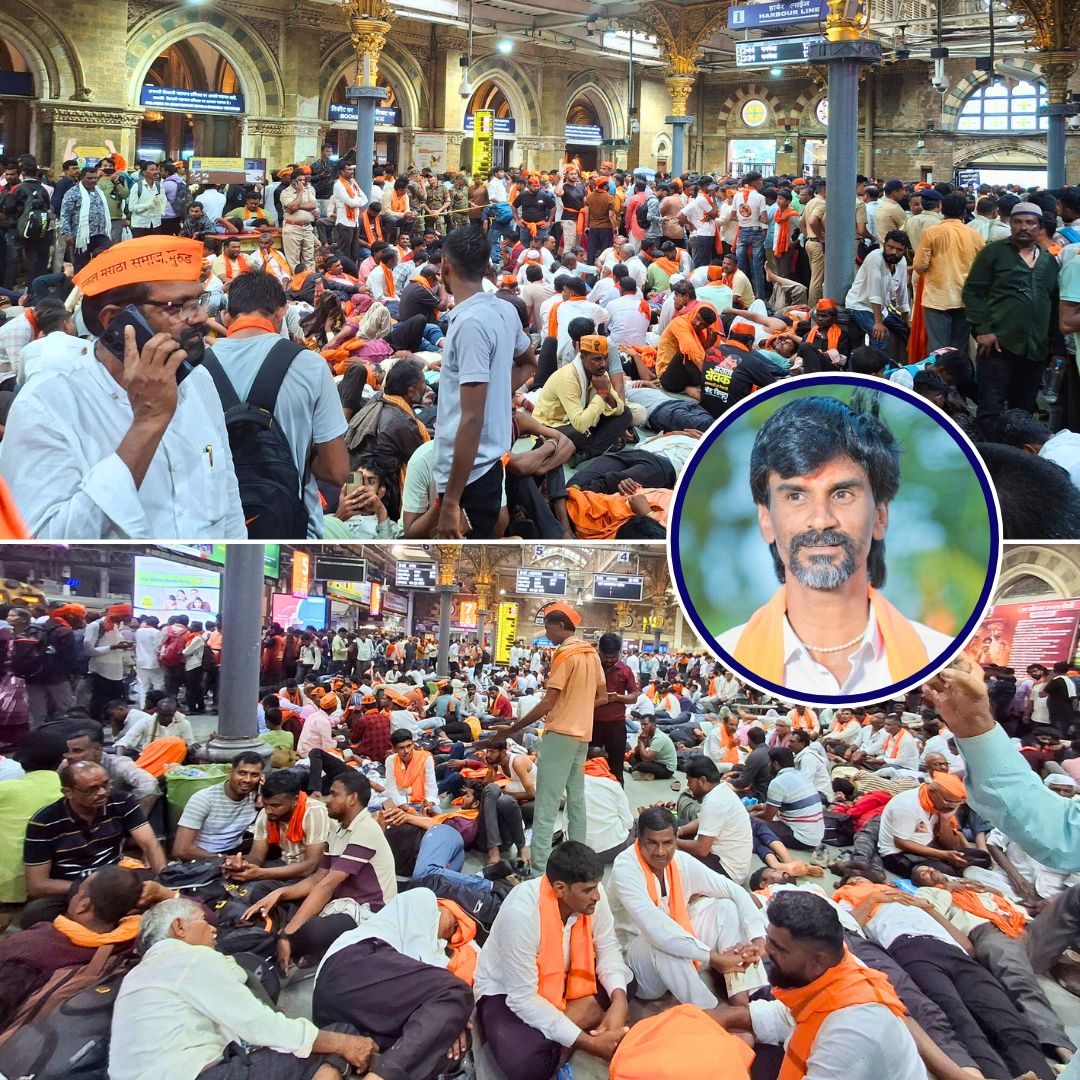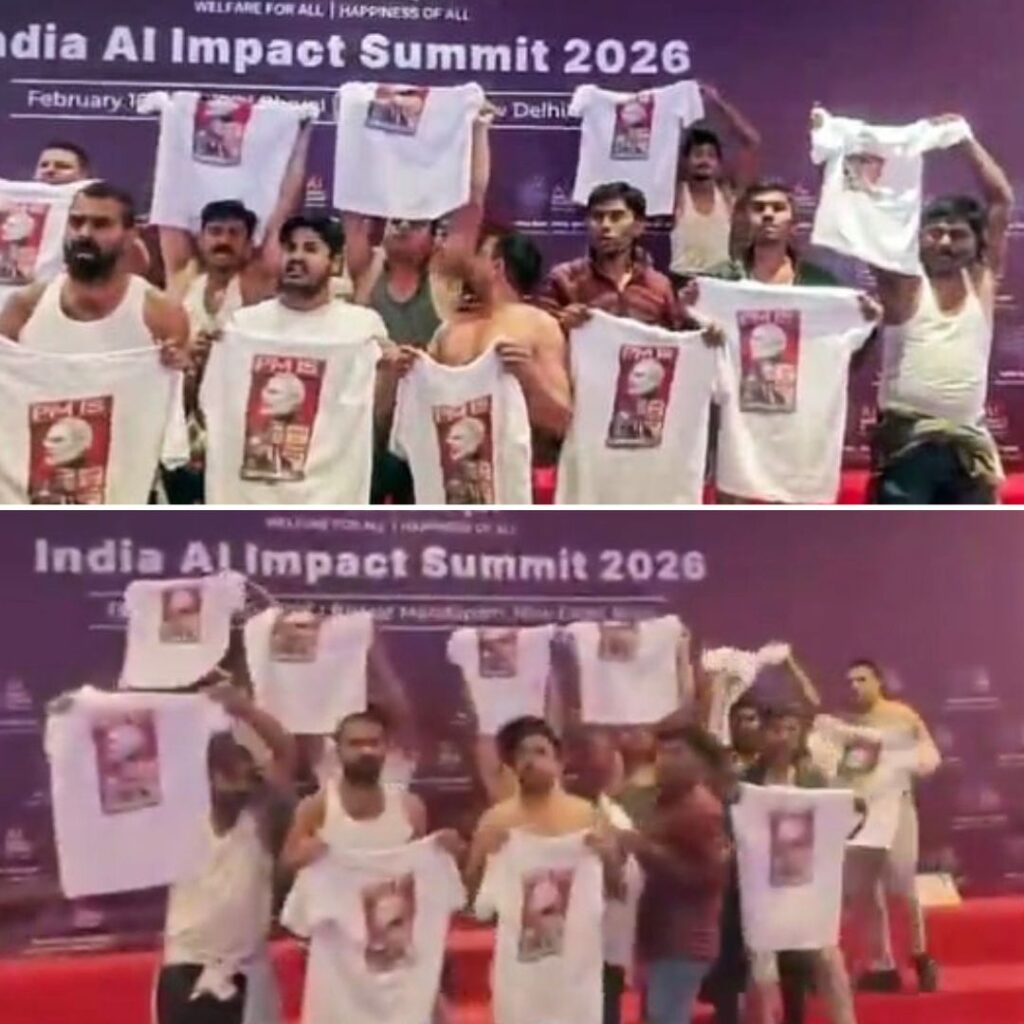The Maratha quota agitation in Mumbai’s Azad Maidan has reached a critical stage, entering its fourth day as activist Manoj Jarange intensifies his indefinite hunger strike by vowing to stop drinking water from Monday. Jarange, who leads a massive protest demanding a 10 percent reservation for Marathas under the Other Backwards Class (OBC) category, has taken a firm stand against the Maharashtra government, asserting he will “even brave bullets” if necessary to press for his community’s demands.
The Maharashtra government has said it will seek legal opinion regarding the quota demand amidst ongoing court rulings that have previously barred mass Maratha reservations. Meanwhile, thousands of protestors continue to camp at Azad Maidan, causing significant traffic disruptions, prompting the Mumbai police to issue advisories for commuters and urging calm. South Mumbai police have warned motorists to expect occasional traffic disruptions while commuting towards South Mumbai on Monday morning.
Massive Protest at Azad Maidan Calls for 10% Maratha Reservation
The protest, which began on Friday, has grown to involve an estimated 35,000 to 45,000 participants, bringing large parts of South Mumbai to a halt. The rally led by Jarange represents widespread frustration over the community’s exclusion from reservation benefits despite claims backed by historical records.
Jarange emphasizes that Marathas and Kunbis are historically the same caste group, citing the 1884 Hyderabad Gazette which classified the Marathas as Kunbis during the Nizam regime, a fact he argues justifies OBC inclusion based on population records of 58 lakh Marathas as Kunbis. “From Monday, I will stop drinking water as the government is ignoring our demands,” Jarange announced, reinforcing his resolve to maintain peaceful yet firm protests until official recognition is granted.
Legal and Political Challenges Surround Maratha Quota Demand
The agitation has faced political challenges and some public backlash. During the protest, NCP MP Supriya Sule’s car was blocked and she faced anti-party slogans, revealing tensions within political ranks over the issue. Sule has appealed for an all-party dialogue and urged the government to convene a special legislative session to address the matter.
The Maharashtra government, led by Devendra Fadnavis, continues to walk a political tightrope, balancing legal constraints with mounting pressure from protestors and community leaders. Retail trade bodies have expressed concerns that the large-scale protests have disrupted business activity in South Mumbai with weekend sales severely affected, highlighting the socio-economic toll of the ongoing sit-in.
The Logical Indian’s Perspective
The Maratha quota agitation is a vivid reminder that social justice demands must be met through dialogue, understanding, and constitutional means without socio-economic disruption or violence.
The Logical Indian advocates for peaceful protests balanced with responsible governance and inclusive policymaking that honours the spirit of equality and dignity for all communities. While the pain and aspirations driving the protest are real and urgent, sustainable solutions require cooperative engagement from all stakeholders.
Expect slow traffic and occasional disruption tomorrow morning while commuting towards south Mumbai due to ongoing agitation. Keep following directions given at traffic junctions to minimise inconvenience.#MTPTrafficUpdate
— Mumbai Traffic Police (@MTPHereToHelp) August 31, 2025
Maratha Reservation Protest in Mumbai 📍
— Preet Sharma (@thepreetsharma) August 31, 2025
People from various parts of Maharashtra have arrived in Mumbai to join Manoj Jarange's hunger strike.
"Ek Maratha, Lakh Maratha" slogans can be heard all over the south bombay region.
CSMT 📍
source: my camera pic.twitter.com/eXyXC2MAVx












